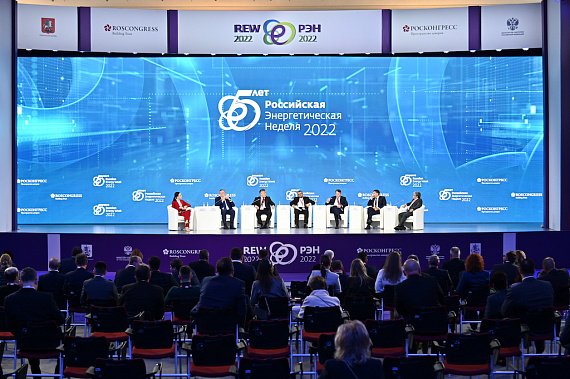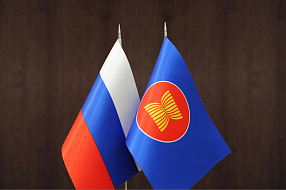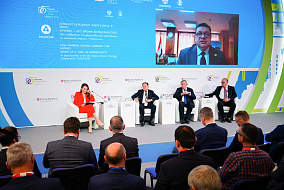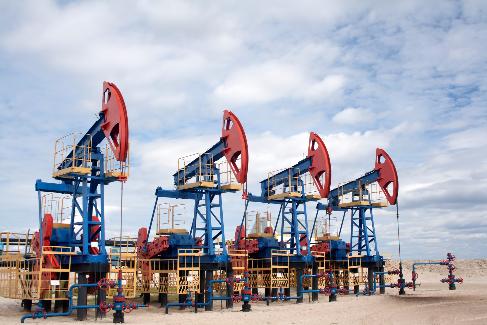Energy as a Foundational Pillar of the Greater Eurasian Partnership

KEY CONCLUSIONS
New geopolitical conditions allow for intensified integration processes in Eurasia
“In today’s geopolitical situation, of course, we are looking more to the East, to Asia. Large integration associations, such as the SCO, the EAEU, ASEAN and the One Belt, One Road initiative, are already working in this area. The CIS can also be mentioned here,” Nikolay Shulginov, Minister of Energy of the Russian Federation.
“Energy is a fundamental part of the integration project. Eurasia is rich in energy resources, so roads, air channels and energy play an important role here. We talk about building pipelines, and we think they are extremely important,” Shafqat Ali Khan, Ambassador Extraordinary and Plenipotentiary of the Islamic Republic of Pakistan to the Russian Federation.
“After the start of events in Ukraine, new opportunities have opened up for us to strengthen infrastructure cooperation in order to embark on fundamental work. <...> The geopolitical changes that have taken place offer unique opportunities for the integration of our region,” Ahmad Asadzadeh, Deputy Minister of Petroleum of the Islamic Republic of Iran.
“The Eurasian space is probably the most dynamic macro-region in the world. Of course, additional grid and generating capacity is needed for development, as well as active economic development,” Andrey Ryumin, General Director, Chairman of the Management Board, Rosseti.
PROBLEMS
The imbalance of low-carbon energy opportunities across Eurasia
“There are risks of systemic incidents. There is still an imbalance in the grid and an imbalance between renewable and conventional energy. This all requires additional investment in the power grid complex, in the development of interconnections,” Andrey Ryumin, General Director, Chairman of the Management Board, Rosseti.
“An important issue is the development of renewable energy sources. In Central Asia, about 10-11 GW should be commissioned in the near future. We are planning to commission about the same amount of RES capacity in Russia by 2035. Accordingly, there are a lot of questions about the development of grid infrastructure,” Fedor Opadchy, Chairman of the Board, System Operator of the United Power System.
“Some countries have realized the fallacy of their ambitious renewable energy policies and that they need to invest in developing traditional energy resources. I think we have a lack of coordination here between technology development and moving towards a low-carbon future,” Nikolay Shulginov, Minister of Energy of the Russian Federation.
Challenges in integrating alternative generation into existing power systems
“There are all the prerequisites for the development of hydropower in the Central Asian countries. The problem is that fitting these facilities into the energy system requires development of the grid complex and further integration of the operation of the energy systems,” Fedor Opadchy, Chairman of the Board, System Operator of the United Power System.
“Green energy is subsidized, and that certainly does not suit many countries that are happy to develop coal-fired generation, because in some of them up to 30% of the population has no access to energy at all. So, each country develops this topic differently, each country based on its own balance sheet, availability of resource, and economic development,” Nikolay Shulginov, Minister of Energy of the Russian Federation.
SOLUTIONS
Coordination of energy system development plans and implementation of joint projects by Eurasian countries
“Today we are talking about the need to build a coordinated policy, including in the energy sector. We need to develop transport and logistics, energy infrastructure projects together – they will be the backbone of the Greater Eurasian Partnership. <...> We need to coordinate energy projects, corridors. Today our attempts to make practical steps to coordinate have not yet found support,” Nikolay Shulginov, Minister of Energy of the Russian Federation.
“Joint planning of a large energy system is fundamentally important, so that we are all aware of what our neighbour is doing. <...> The main thing is joint planning of energy systems, interconnections,” Andrey Ryumin, General Director, Chairman of the Management Board, Rosseti.
“It is important to understand that the energy systems of Russia and Central Asia operate in parallel. In this sense, without continuous technological interaction between the parties, it is simply physically impossible to ensure that the countries’ power systems operate separately and together. <...> Mechanisms for coordinated planning of power grid infrastructure development should be developed between the countries in the energy with due account for changes in the generation structure,” Fedor Opadchy, Chairman of the Board, System Operator of the United Power System.
“If we want to strengthen Eurasia’s energy projects, we need to establish a coordinating secretariat for energy in the Eurasian region, which will seriously monitor our projects. A common investment fund should be established to strengthen the Eurasian partnership,” Ahmad Asadzadeh, Deputy Minister of Petroleum of the Islamic Republic of Iran.
Harmonisation of legal and technical norms of Eurasian countries for joint energy development
“To improve the efficiency of work in the energy sector of the Eurasian Economic Union, we are harmonizing regulations. An international energy market treaty was already prepared in April. It is being negotiated by the Union’s countries. The treaty on a common market for gas and oil products is being discussed. <...> We will continue to work on the harmonization of legislation within the EAEU,” Arzybek Kozhoshev, Member of the Board, Minister in Charge of Energy and Infrastructure, Eurasian Economic Commission.
“It is very important to coordinate the normative, technical and regulatory rules by which the power systems that work together live. <...> As we work together, there has to be harmonization of the regulatory, economic rules of entities between countries,” Fedor Opadchy, Chairman of the Board, System Operator of the United Power System.
For more information, visit the Roscongress Foundation’s Information and Analytical System roscongress.org and the official Forum website rusenergyweek.com.





